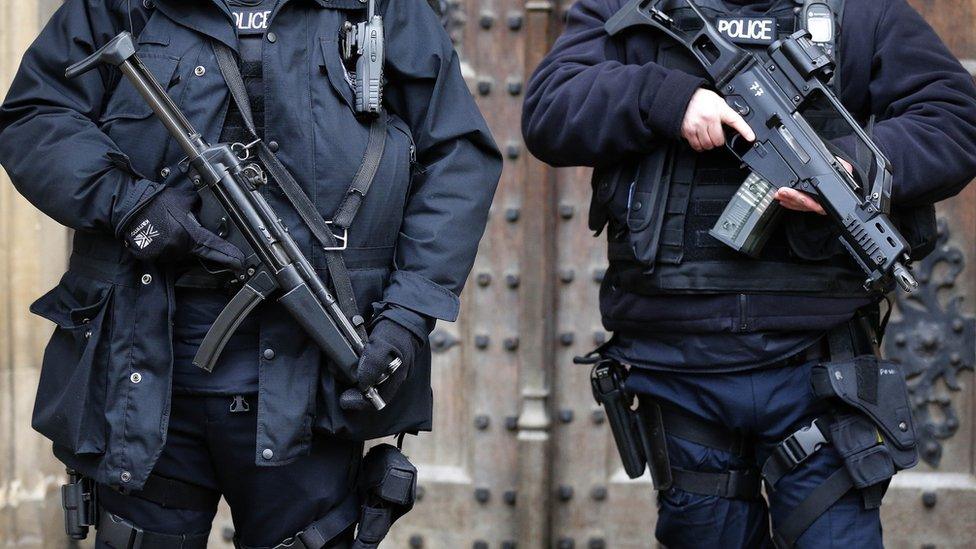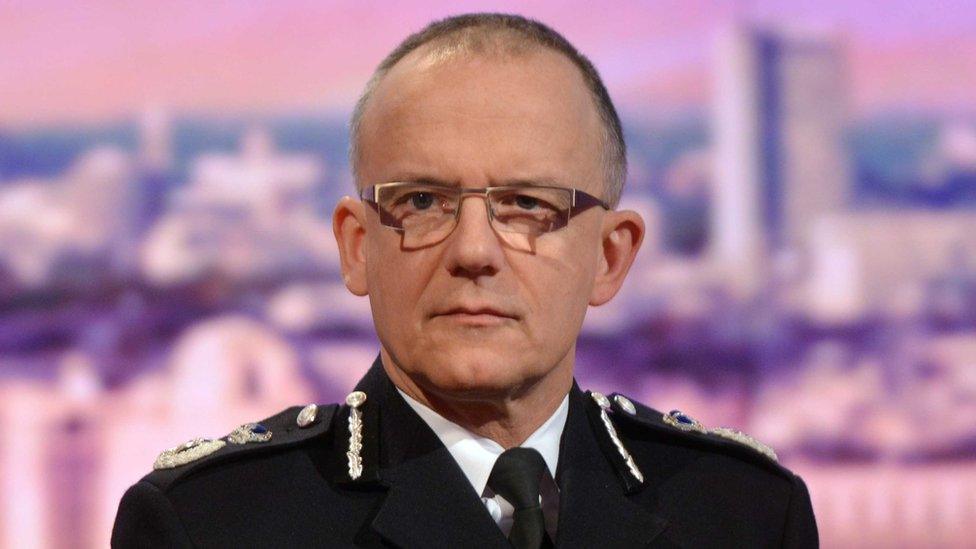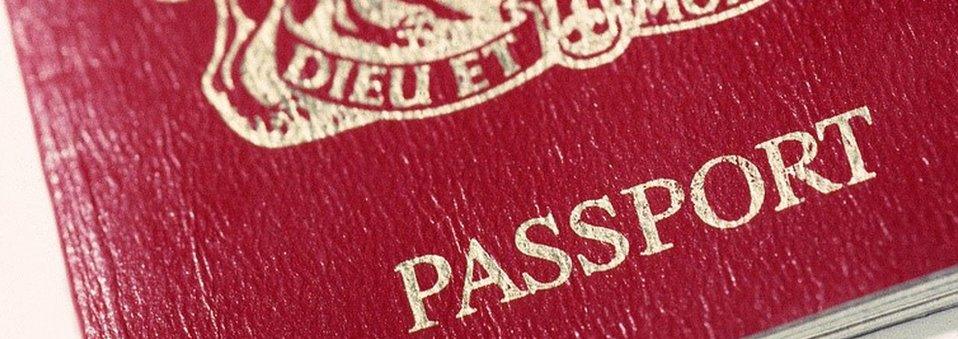Islamic State group 'may be plotting huge attacks' in UK
- Published

Mr Rowley would not be drawn on specific plans or operations
The so-called Islamic State group may be planning a "spectacular" attack in the UK, the national head of counter-terrorism policing has warned.
Assistant Commissioner Mark Rowley said there was evidence IS was "trying to build bigger attacks" globally, and the UK was among its targets.
He said IS had expanded its ambitions from smaller-scale targets to attacks on "Western lifestyle".
However, he would not be drawn on any specific plans or operations.
Several attacks, including last year's gun and bomb attacks in Paris, were inspired by IS, also known as Daesh.
Speaking at a briefing in London, Mr Rowley revealed the number of terrorism-related arrests in Britain hit record levels last year.
There were 339 arrests in England, Wales and Scotland - the highest yearly figure.
Scotland Yard - which published the data - said there had been a 57% increase in the last three years compared with the previous three.
The UK's terror threat level is currently rated as "severe".
This means that security and intelligence chiefs have concluded that a terrorism-related attack is highly likely.

Assistant Commissioner Mark Rowley said IS has big ambitions for "enormous and spectacular attacks"
Mr Rowley said in the past few years, IS had called on would-be jihadists to attack police and the military.
"In recent months we've seen a broadening of that - much more plans to attack Western lifestyle, and obviously the Paris attacks in November," he said.
"Going from that narrow focus on police and military as symbols of the state to something much broader.
"And you see a terrorist group which has big ambitions for enormous and spectacular attacks - not just the types that we've seen foiled to date."
IS is trying to get supporters who have received military training in Syria into northern Europe to stage attacks, he added.

Analysis - By Dominic Casciani, home affairs correspondent

Some 800 people from the UK have gone to fight in Syria or Iraq. Do they all pose a threat?
When police, spooks and official deradicalisers assess returnees from Syria, only a few will be subject to substantial surveillance because intelligence suggests they could be immediately dangerous.
It's that group that worries counter-terrorism chiefs most, not least if there are suspicions that the individual is being directed from Syria.
Another major dilemma for security chiefs is what to do with those bent on going to Syria who can't be charged with a crime. If they are stopped, such as by cancelling their passport, will they turn their attention to Britain? What would they be capable of achieving?
Plans such as a knife attack in the street are easy to organise.
Major plots need detailed plans, skills and the ability to evade detection until it's too late.

Mr Rowley said psychologists were being deployed to work with counter-terrorism units because of increasing concern that people with mental health problems were being radicalised.
The use of psychologists was becoming "increasingly standard" he said, adding: "Having that insight is critical."
Analysts say that although the UK has sustained far fewer casualties from jihadist violence than France, evidence indicates that incidents such as the Paris attacks could happen here.
The official assessment that there is a "severe" threat from international terrorism is one notch down from the extreme situation of "critical" - when an attack is judged to be imminent.
'Stress-testing' London
Last year, the Metropolitan Police carried out a major exercise in London to "stress-test" how it would respond to attacks such as those in Paris.
The conclusions have been kept secret, but commentators on security issues have noted various physical and organisational changes implemented in the city.
Many of London's buildings are now surrounded by bollards designed to withstand lorry bombs, CCTV and number plate cameras have proliferated, and specialist armed police - trained to a military standard - carry out daily patrols designed to strategically cover as much of the capital as possible.